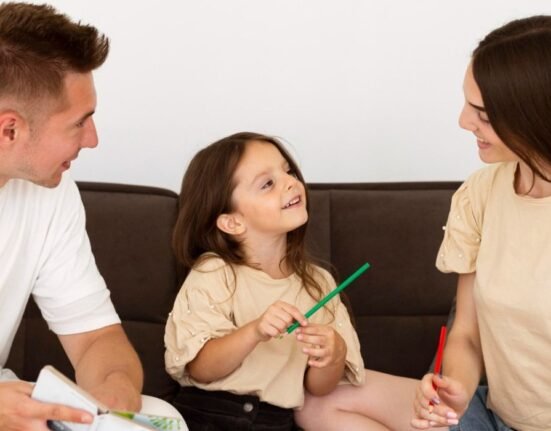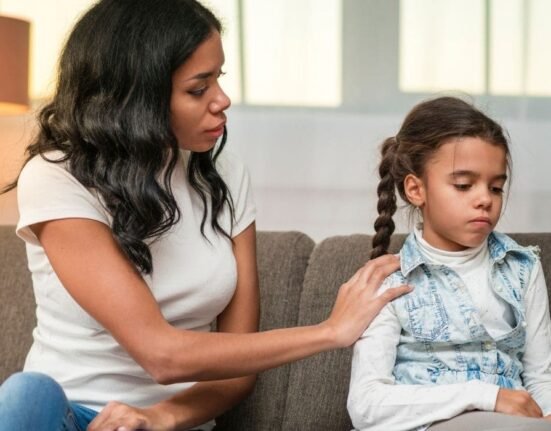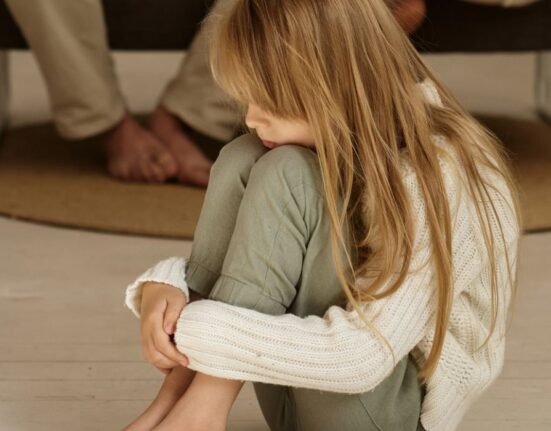When parents fail to provide all the love and care a child deserves and rely on their children for the same, it leads to Parentification. As a result, a child becomes a caregiver. It makes a child handle all the adult responsibilities even before he/she becomes an adult. The word parentification was given by Ivan Boszormenyi Nagy who was an American psychiatrist, which describes what happens when the roles of a child and the parents are reversed. Parentification affects the process of child development and the child’s mental and physical health negatively.
Read More: The Basics of Child Psychology
According to Jacinda K. Dariotis, “Parentification is like increasing the activities that the adults should be doing. The outcomes will be more negative for the children if it starts earlier and lasts longer.” A common example is when a child is told by their relatives that he is the ‘man of the house now’ after his father passes away. After hearing this, a child starts taking this role very seriously and starts worrying about his mother and siblings.
Studies and Research on Parentification
- According to the National Alliance for Caregiving approximately 1.4 million children in the United States experience and are experiencing parentification.
- It was found that during the COVID-19 pandemic, children in Poland had to take care of their education when many families experienced illness or job loss.
- A research by Jones and Wells in 1996 found that many children who had grown up very quickly showed characteristics like “people pleasing”.
- DiCaccavo (2005) argues that parentification makes a child a failure as he/she is attempting to perform tasks that are beyond his/her capabilities.
Types of Parentification
There are two types of Parentification :
- Instrumental Parentification is when a child is held responsible for the household tasks in the family. For example, cleaning, grocery shopping, paying the bills, cooking etc.
- Emotional Parentification is when a child is held responsible for the emotional tasks in the family. for e.g. taking care of parents, taking care of siblings, listening to parents’ complaints and frustrations, serving as a mediator in parents’ arguments.
Causes of Parentification
Parentification can arise from :
- Divorce
- Financial problems
- Parents who were neglected in their childhood
- Depressed parents
- Death of a parent or sibling
- Drug or alcohol addiction
- Disability of parents
- Toxic relationship between parents
Effects of Parentification
Parentification leaves lasting effects on a child that remain till adulthood. Some of the effects are:
- Loss of childhood: One of the biggest effects of parentification is that a child loses his childhood as he/she is forced to grow up very soon. A child struggles to play or have fun after he/she is given the responsibility of the family.
- Guilt & Shame: A child starts believing that it’s his/her fault whenever something bad happens in the family. A child starts thinking that the parents might punish him/her for creating conflicts or misfortunes. Thus, they blame themselves.
- Seeing own needs as a burden: A child might get sensitive to others’ needs and start putting their needs above their own. They might feel like their needs are a burden to them and their family members. Thus, they start neglecting themselves.
- Social Isolation: A child might lose his real self due to all the responsibilities and end up getting lonely and confused about who they actually are. This continues till adulthood which causes a form of loneliness and social isolation that also creates interpersonal and intrapersonal problems.
- Mental Health Issues: It becomes unhealthy when a child suppresses his/her own needs in front of others, and a child who has experienced parentification experiences anxiety, depression, substance use disorders and other issues.
Signs of Parentification
- You felt responsible for your siblings or your parents.
- You felt like you had to be the peacekeeper.
- You felt like your family would not make it without you.
- Your childhood lacked the fun that other kids had.
- You were given responsibilities that were not age appropriate.
- You tend to be the caregiver in your relationships
- You felt overworked between school and family responsibilities.
How to Heal From Parentification?
- Acknowledge the Experience– Recognize and acknowledge that you were parentified. Unde0rstanding that this was not a typical or healthy childhood experience is the first step towards healing.
- Seek Support– Find a therapist or counselor who specializes in childhood trauma or family dynamics. Talking to a professional can provide you with the support and guidance you need to work through your experiences. CBT can help a child to change their thought patterns and feelings about themselves that can be helpful in healing them. By listening and getting in touch with the inner self, a child can give himself/herself the things that they did not get in your past.
- Set Boundaries– Learn to set healthy boundaries with your family members or anyone who may still expect you to fulfill a parental role. It’s important to establish your own identity and prioritize your own needs.
- Self-Compassion– Be gentle with yourself and practice self-compassion. Understand that you were put in a difficult position and did the best you could at the time.
- Reclaim Your Childhood– Engage in activities or hobbies that bring you joy and allow you to reconnect with your inner child. This can help you experience a sense of freedom and playfulness that may have been lacking during your childhood.
- Develop Healthy Relationships– Surround yourself with supportive and nurturing relationships. Building healthy connections with others can help counteract the effects of parentification and provide you with the love and care you deserve.
- Therapeutic Techniques– Explore therapeutic techniques such as inner child work, cognitive-behavioral therapy (CBT), or dialectical behavior therapy (DBT) to address any underlying issues and develop coping strategies.
- Educate Yourself– Educate yourself about parentification and its effects. Understanding how it has impacted your life can empower you to make positive changes and break free from unhealthy patterns.
- Practice Self-Care– Make self-care a priority in your life. This can include activities such as exercise, mindfulness, journaling, or spending time in nature. Taking care of your physical and emotional well-being is essential for healing.
- Celebrate Progress– Celebrate your progress, no matter how small. Healing from parentification is a journey, and it’s important to acknowledge and celebrate the steps you take along the way.
Remember that healing takes time, and it’s okay to seek support and guidance as you navigate this process. You deserve to live a fulfilling and authentic life, free from the burdens of your past experiences. Keeping a childhood photo or writing a letter to the inner child are some of the exercises that are helpful in healing from parentification. Parentification can have long lasting effects that can be painful. If you experienced parentification try reversing the effects by being a parent you never had and start taking care of yourself. You deserve unconditional love and care. Reaching out to a mental health professional might heal you from parentification and trauma.
References +
- Corelli, C. (2024, January 22) Parentification: The Heavy Burden Borne By A Parentified Child. https://www.carlacorelli.com/family/parentified-child-parentification-definition
- Dariotis, J., et al (2023, June 21). Parentification Vulnerability, Reactivity, Resilience, and Thriving: A Mixed Methods Systematic Literature Review. https://www.ncbi.nlm.nih.gov/pmc/articles/PMC10341267
- Gifford, B. (2023, February 15). What is parentification, who does it affect, and is it always bad? https://happiful.com/what-is-parentification
- Guha, A. (2021, July 31). The Parentified Child in Adulthood. https://www.psychologytoday.com/intl/blog/of-prisons-and-pathos/202107/the-parentified-child-in -adulthood
- Gupta, S. (2023, January 5). What is Parentification? https://www.verywellmind.com/parentification-types-causes-and-effects-7090611
- Harris,N. (2023, July 24). What Are the Warning Signs of Parentification? https://www.parents.com/kids/development/what-is-parentification-spotting-the-warning-signs-an d-how-to-let-kids-be-kids/
- Johnson, J. (2022, April 29). What to know about parentification. https://www.medicalnewstoday.com/articles/parentification













Leave feedback about this